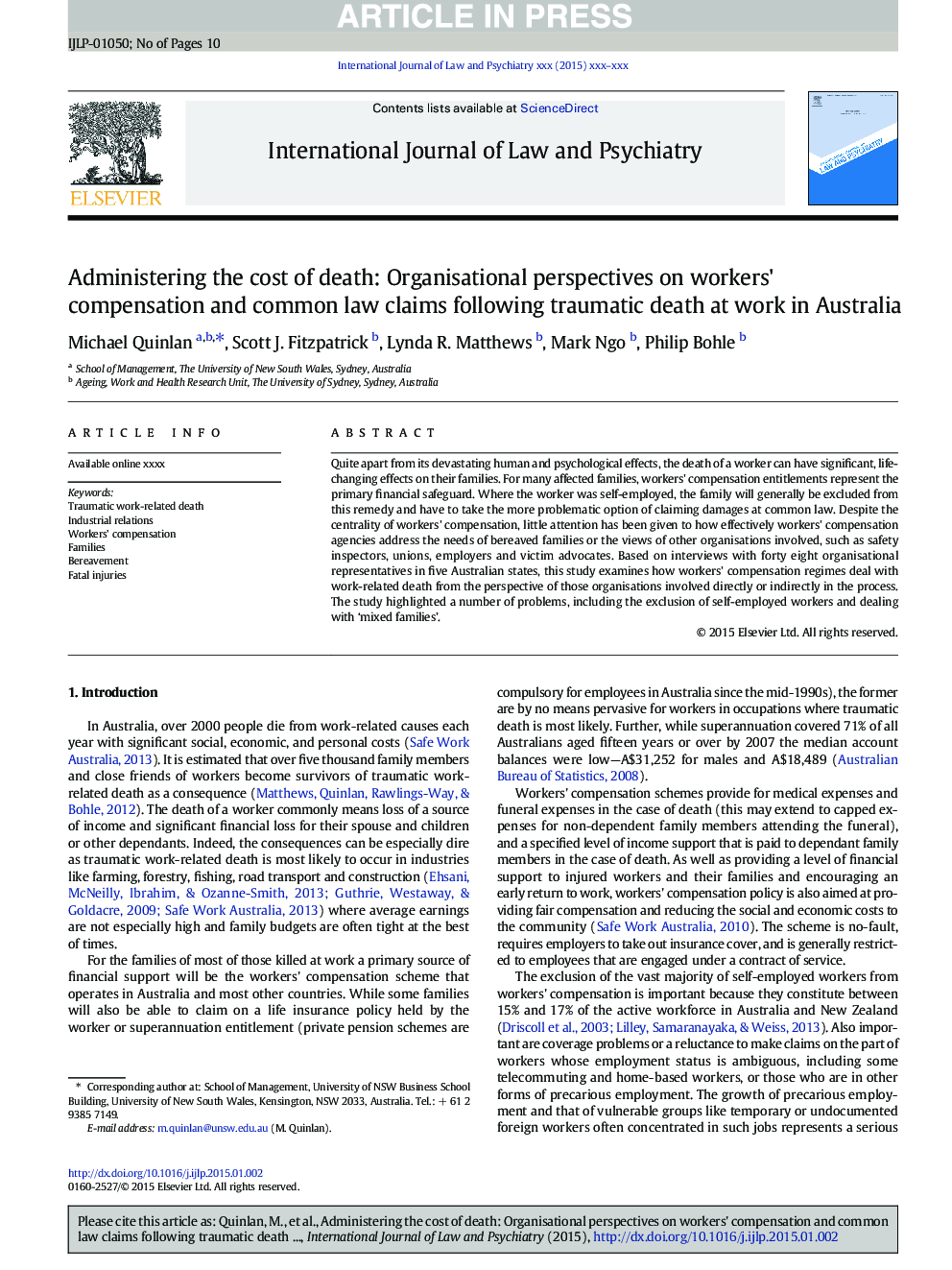| Article ID | Journal | Published Year | Pages | File Type |
|---|---|---|---|---|
| 6554672 | International Journal of Law and Psychiatry | 2015 | 10 Pages |
Abstract
Quite apart from its devastating human and psychological effects, the death of a worker can have significant, life-changing effects on their families. For many affected families, workers' compensation entitlements represent the primary financial safeguard. Where the worker was self-employed, the family will generally be excluded from this remedy and have to take the more problematic option of claiming damages at common law. Despite the centrality of workers' compensation, little attention has been given to how effectively workers' compensation agencies address the needs of bereaved families or the views of other organisations involved, such as safety inspectors, unions, employers and victim advocates. Based on interviews with forty eight organisational representatives in five Australian states, this study examines how workers' compensation regimes deal with work-related death from the perspective of those organisations involved directly or indirectly in the process. The study highlighted a number of problems, including the exclusion of self-employed workers and dealing with 'mixed families'.
Related Topics
Health Sciences
Medicine and Dentistry
Forensic Medicine
Authors
Michael Quinlan, Scott J. Fitzpatrick, Lynda R. Matthews, Mark Ngo, Philip Bohle,
